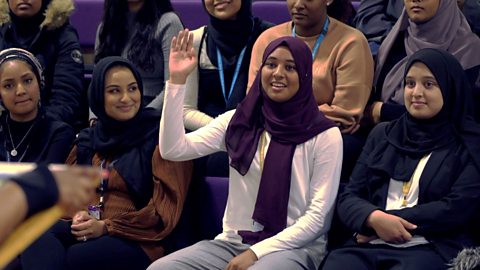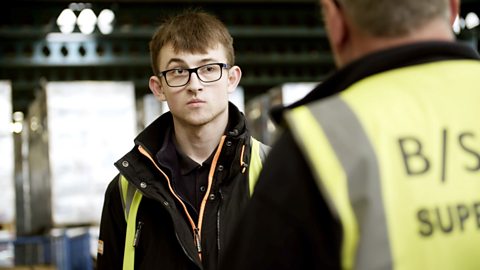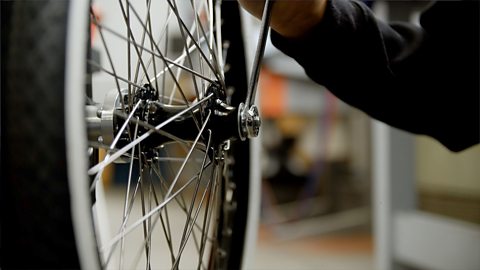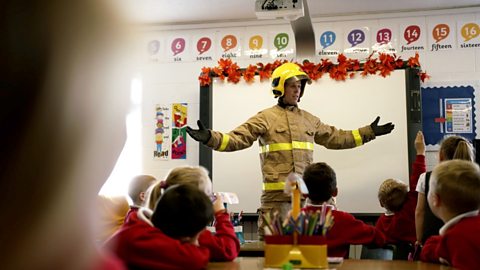Mandy Green: The background context of our school is quite a diverse catchment, we do have two of the most deprived wards in the country and so we will have lots of students where they would be first generation university or possibly they could be second generation unemployed. We have high numbers of young carers, high number of students with EAL. On the other side of that we do have some really strong gifted and talented students, so we need to make sure that our programme is really broad.
Chris Deller: Students when they arrive in year 7 are really clear about our messages for careers and aspirations and Miss Green, our aspirations lead, makes sure she leads assemblies and that's embedded into our assembly programme. So the culture of the school is to support students but also ensure they've got clear pathways through to a sixth form provision as well.
Mandy Green: Our careers programme has grown quite steadily since I took on the role approximately six years ago. Initially, I was like a child in a sweet shop because I got to do careers all of the time, which was amazing. Then I calmed down a bit, realised I needed a bit of a plan and we went for a quality award. From that our programmes developed, we worked with the STEM LEP network in school and we achieved all of the Gatsby benchmarks in July last year.
The main challenges in achieving the eight Gatsby benchmarks… When we first did the compass evaluation, we were quite close to meeting the benchmarks initially, but I wanted to make sure that what we were achieving was sustainable and that it was quality rather than seeing it as a tick box exercise.
The final benchmark that we achieved was the benchmark which is experiences of workplaces. So our school curriculum model currently was a one year GCSE model, so I couldn't negotiate a week for students to be out of those lessons for full time work experience. Some other schools, when I looked at best practice, do something called 'take me to work day', but we didn't feel that it would be fair to offer that because we know that thirty to forty percent of every year group might have parents that might not have contacts and have anyone that they could go to work with for the day. So we looked at taking out all of our students in key stage three, so before they start those one year option subjects, on an employer visit. So we do that in year 8, they learn about the company, how it was created, sometimes they get a tour, sometimes they get to do an activity. Staff as well as parents in fact, were saying, "why are they doing that in year eight?" initially before it became the norm, whereas now in our school they just expect it, you know, all of our year 7s go on a university visit in year 7 because the sooner they learn about it more likely they are to aspire to do it. They're like sponges you know year 7s and 8s, so the more information you can give them then that really helps to develop the programme.
As Director of Aspiration the whole overview of the programme is myself, I'm supported massively and I'm very lucky to have a full time careers advisor in the school and that's Mr Dawe.
Jon Dawe: We live in an age where the students are just bombarded with so much information. Often people forget the importance of being able to work through that information and having somebody to come alongside them and to guide them and to help them to make the right decisions for them, because just having the information is not enough. I think previously I was very much giving information, whereas more in the last six, seven years since I've been here, I've kind of improved my practice in terms of my guidance skills and also kind of think about the employability skills that students need. I've overheard teachers and parents say, "Oh, well, surely It's just about telling them what job they should do." And it's so not about that at all. It's more about helping them to develop the soft skills and employability skills like teamwork, problem solving, helping them to think about what they need to transition successfully from school into employment.
Mandy Green: Now we've got the basics in place, we meet the benchmarks, we're really looking at the detail, at what else can we do so that what we're doing has a bigger impact and helps our students, not only get to where they want to be, but have really good career management skills, so that they can be successful in whatever transition that they go on to and for the rest of their career.
So I'm on my way to see Jack from The Football Education Academy. So he runs like a football education programme for students that wouldn't necessarily stay if they were in a sixth form environment or college environment. So the learning is all based around the football and they do like a level three BTEC sport. So today I'm gonna to see how those things are settling in, also tell Jack about a couple of events I've got coming up where he can come into school and let our current year 11s know about the programme that he offers.
Tip number one would be, and I kind of learnt this the hard way, you won't be able to do everything in one year. You need to have a two or three year plan, decide what your priorities are, do an audit, see what's going on in the school already and also take time to evaluate and reflect on your activities and always be clear about what you're learning objective is rather than doing stuff cause it sounds exciting.
My second top tip would be, keep pushing it. You've got to be the ambassador for careers in the school. A school consists of lots and lots of teachers, everybody knows what teachers are expected to do; they're expected to get the students qualifications. Not everybody understands your role and you need to celebrate everything that you do and everything that everyone else in the school does linked to careers.
Tip number three, don't be afraid to ask. For example, we wanted a projector for the ILC here. I put a message out and I got a local employer and they offered us five hundred pounds towards the projector for the room so that we got it. When we do events sometimes we'll say if you've got a prize could you bring that along companies don't think twice about that often they're really happy to help.
A look at a secondary school in the South Midlands, where a diverse catchment area means a broad careers programme is needed to meet every student's needs.
This is one of five films from a 91Čȱ¬ Teach collection profiling a range of schools and careers practitioners across the UK.

More from this collection:
How do you create a personalised careers journey for every student? video
A look at an all-girls school in London, where the whole leadership team buys into the school's careers vision.

Delivering careers education, guidance and experience of work to students with additional needs. video
A look at the creative ways a special school for students with moderate to complex needs provides careers guidance.

Using creative enterprise projects and links with external organisations. video
Visiting a school in Wales that starts its careers programme in year 7 with a one-to-one interview with each child and their parents, where aspirations, targets and any barriers to success are discussed.

How can we encourage children to raise their career aspirations from as early as age 5? video
Profiling a primary school in Northern Ireland to explain how careers can be linked to areas of the curriculum in primary education.

91Čȱ¬ Bitesize Careers. collection
Click here to explore the 91Čȱ¬ Bitesize Careers website. Bitesize Careers is designed for your students and covers the world of work with advice from people who've found the right path for them. The site features over 300 job profile videos, spanning industry sectors, offering case studies and peer-led insights into the world of work.
